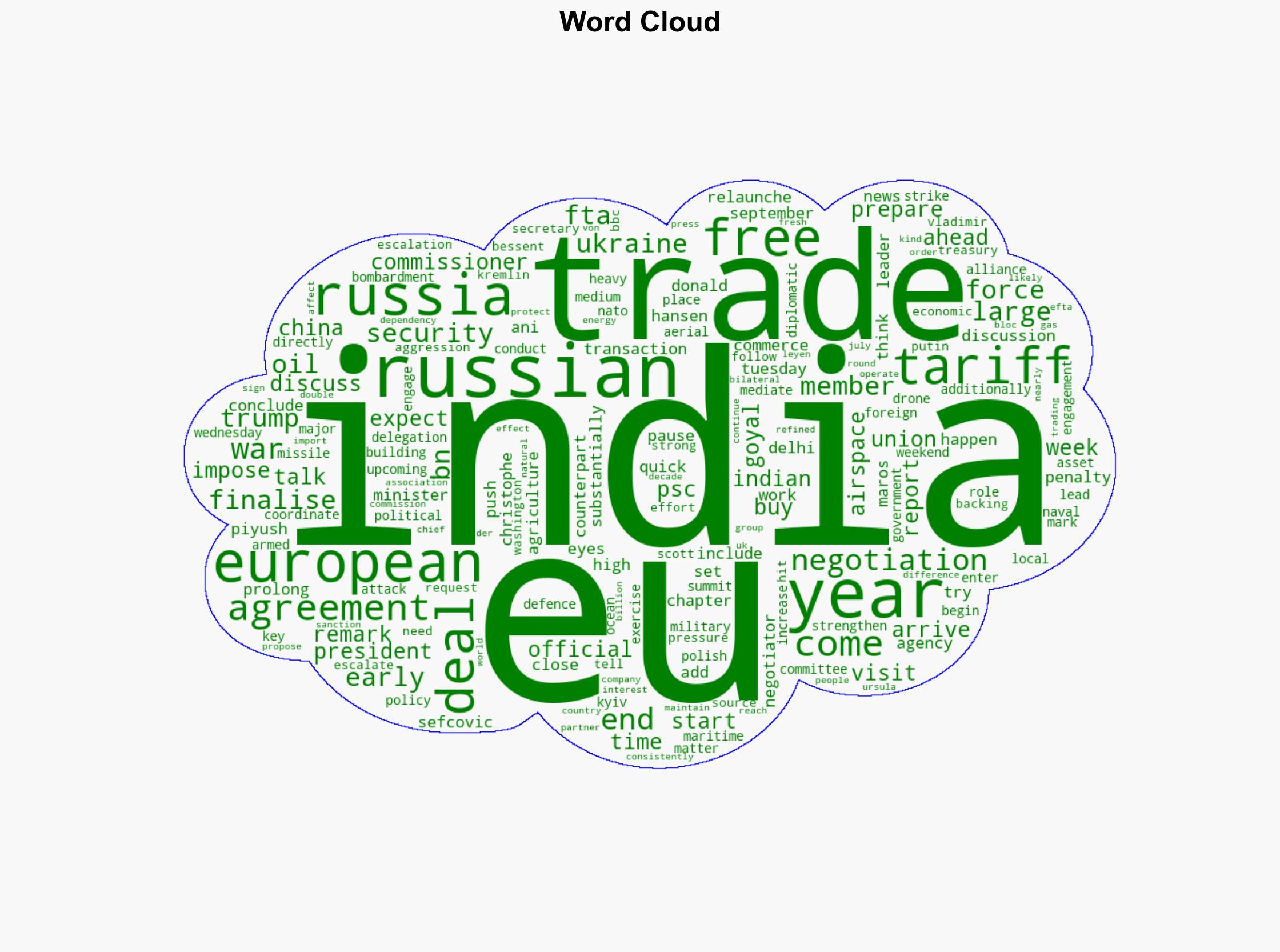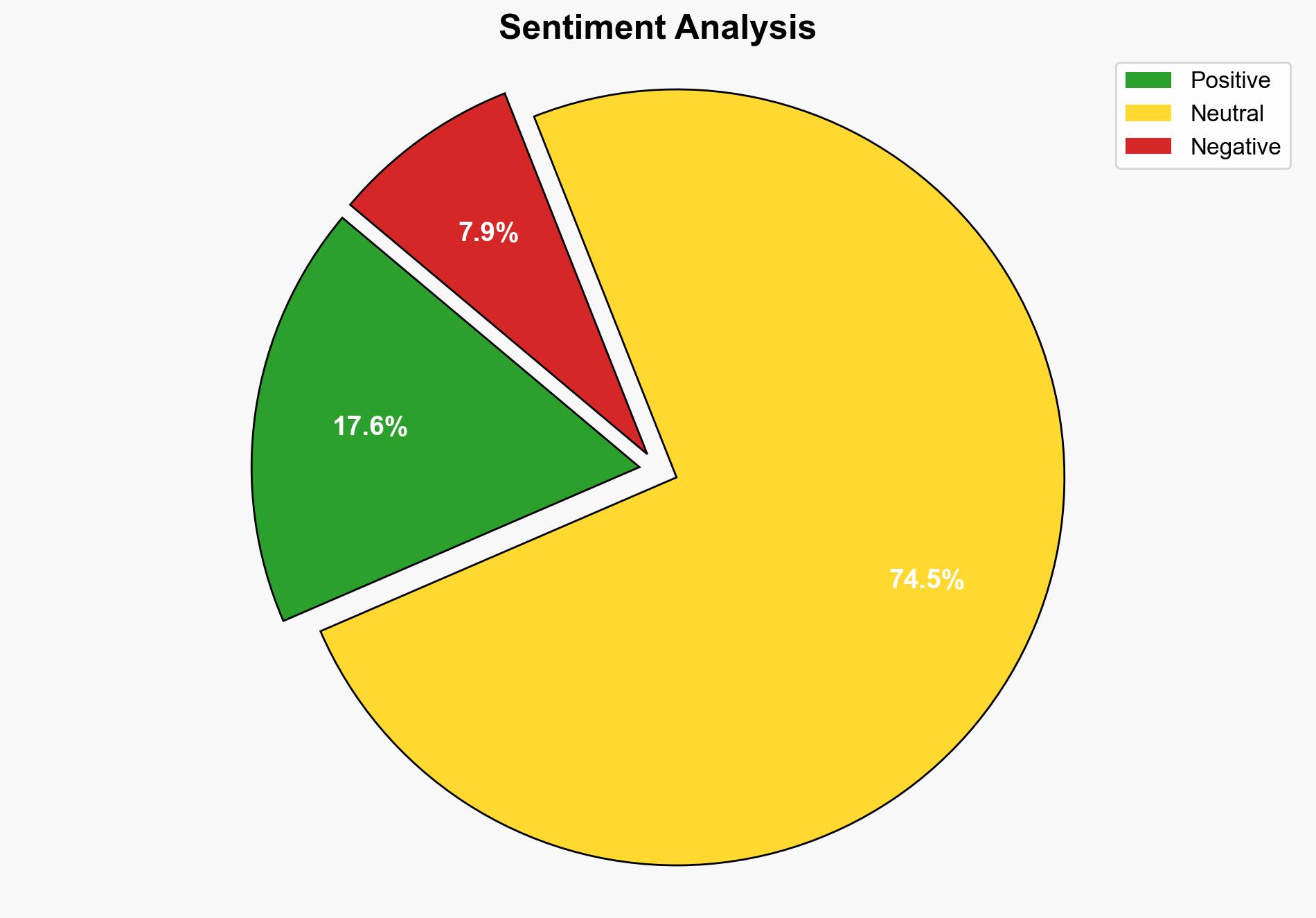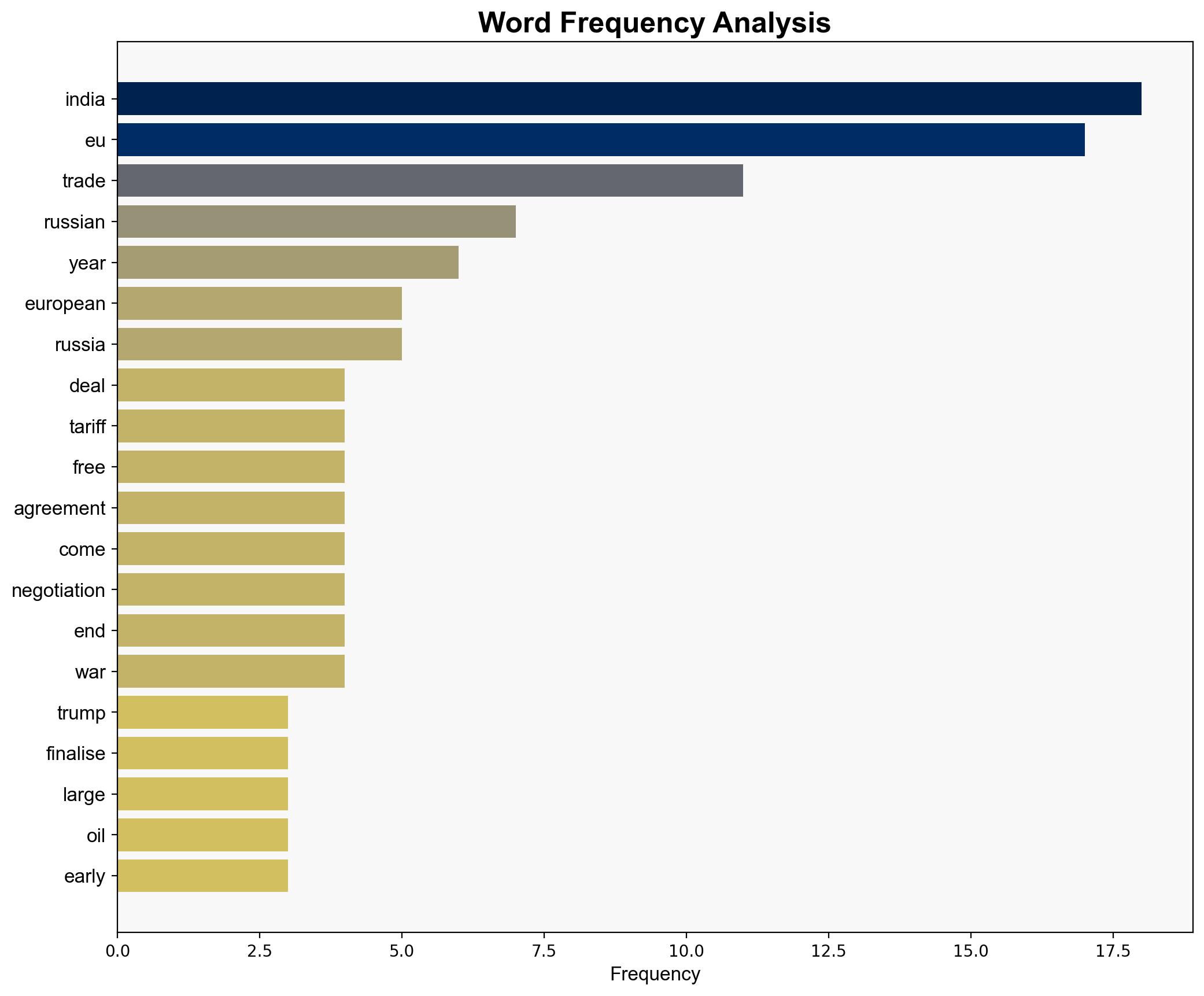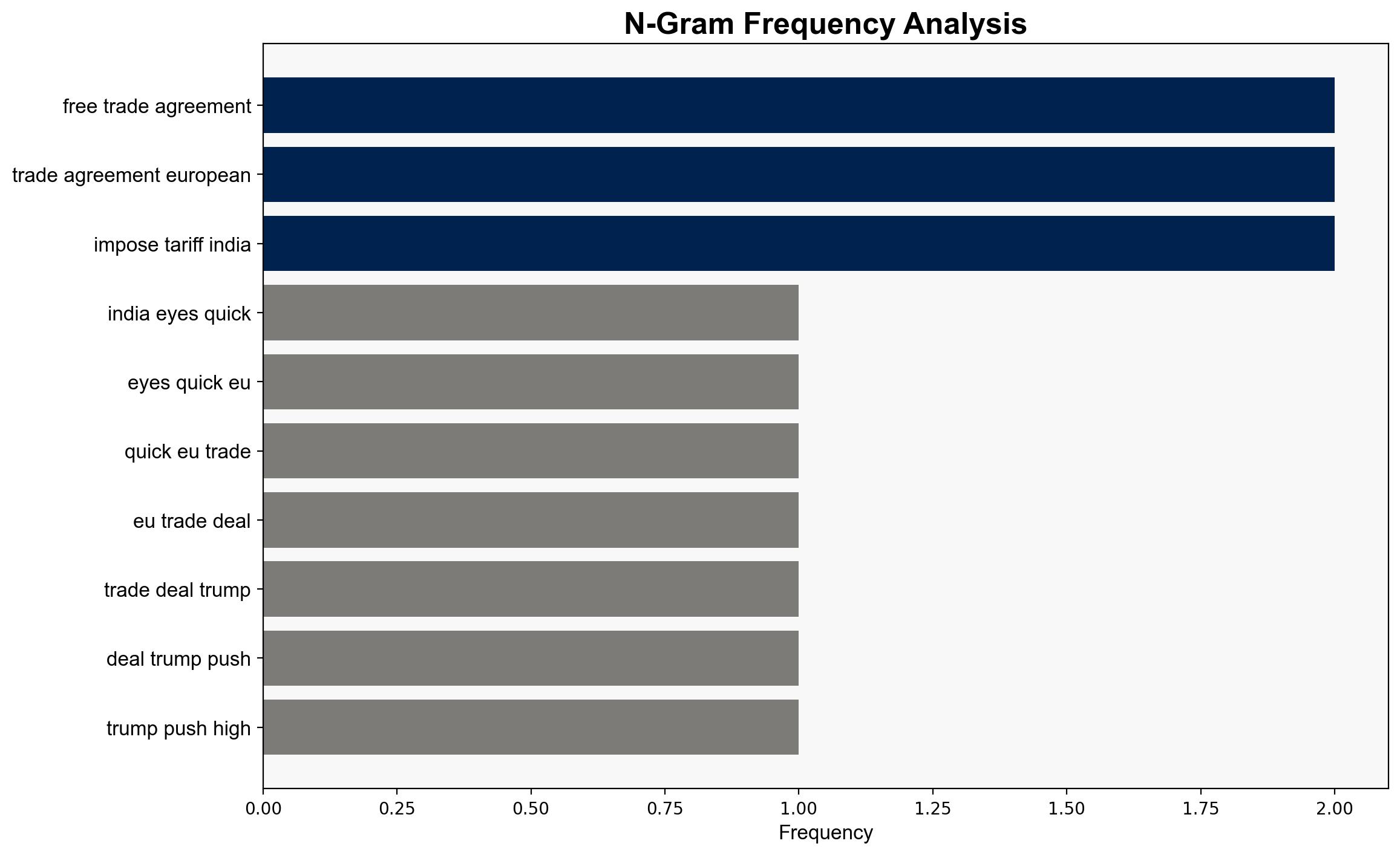India eyes quick EU trade deal as Trump pushes higher tariffs – BBC News
Published on: 2025-09-10
Intelligence Report: India eyes quick EU trade deal as Trump pushes higher tariffs – BBC News
1. BLUF (Bottom Line Up Front)
India is actively seeking to expedite a free trade agreement (FTA) with the European Union (EU) amid geopolitical tensions and economic pressures from the United States. The most supported hypothesis is that India aims to diversify its trade partnerships to mitigate risks associated with U.S. tariffs and geopolitical instability. Confidence Level: Moderate. Recommended action: Monitor the progression of trade negotiations and assess impacts on regional economic stability.
2. Competing Hypotheses
1. **Hypothesis A**: India is accelerating its FTA with the EU primarily to counterbalance the economic pressure from potential U.S. tariffs and to reduce dependency on Russian energy, aligning with EU’s strategic interests.
2. **Hypothesis B**: India is using the FTA negotiations as leverage to negotiate better terms with the U.S. and other trading partners, while also maintaining its strategic autonomy in energy procurement from Russia.
Using ACH 2.0, Hypothesis A is better supported due to India’s proactive engagement with the EU and the context of recent geopolitical tensions, suggesting a strategic pivot towards strengthening EU relations.
3. Key Assumptions and Red Flags
– Assumptions: India assumes that an FTA with the EU will provide sufficient economic benefits to offset potential U.S. tariffs. The EU assumes that India will align more closely with its geopolitical stance, particularly regarding Russia.
– Red Flags: Potential overestimation of the speed and ease of finalizing the FTA. Lack of clarity on how India will balance its energy needs with EU’s expectations on Russian sanctions.
– Blind Spots: The impact of internal EU political dynamics on the negotiation process and India’s domestic economic reforms.
4. Implications and Strategic Risks
– Economic: Successful FTA could enhance India’s trade volume with the EU, but failure could expose India to increased economic pressure from U.S. tariffs.
– Geopolitical: Strengthened India-EU ties may alter regional power dynamics, potentially affecting India’s relations with China and Russia.
– Cyber: Increased digital trade provisions in the FTA may expose vulnerabilities in India’s cybersecurity infrastructure.
– Psychological: Domestic perception of India’s foreign policy effectiveness may shift based on the outcome of the negotiations.
5. Recommendations and Outlook
- Recommendation: India should continue to diversify its trade partnerships while maintaining strategic autonomy in energy procurement.
- Best-case scenario: Successful FTA with the EU, leading to increased trade and reduced dependency on U.S. and Russian markets.
- Worst-case scenario: Breakdown in negotiations, resulting in economic strain from U.S. tariffs and geopolitical isolation.
- Most likely scenario: Partial agreement with the EU, providing moderate economic relief and strategic alignment.
6. Key Individuals and Entities
– Piyush Goyal
– Maroš Šefčovič
– Christophe Hansen
– Ursula von der Leyen
– Donald Trump
– Vladimir Putin
7. Thematic Tags
national security threats, economic strategy, geopolitical alignment, trade negotiations




